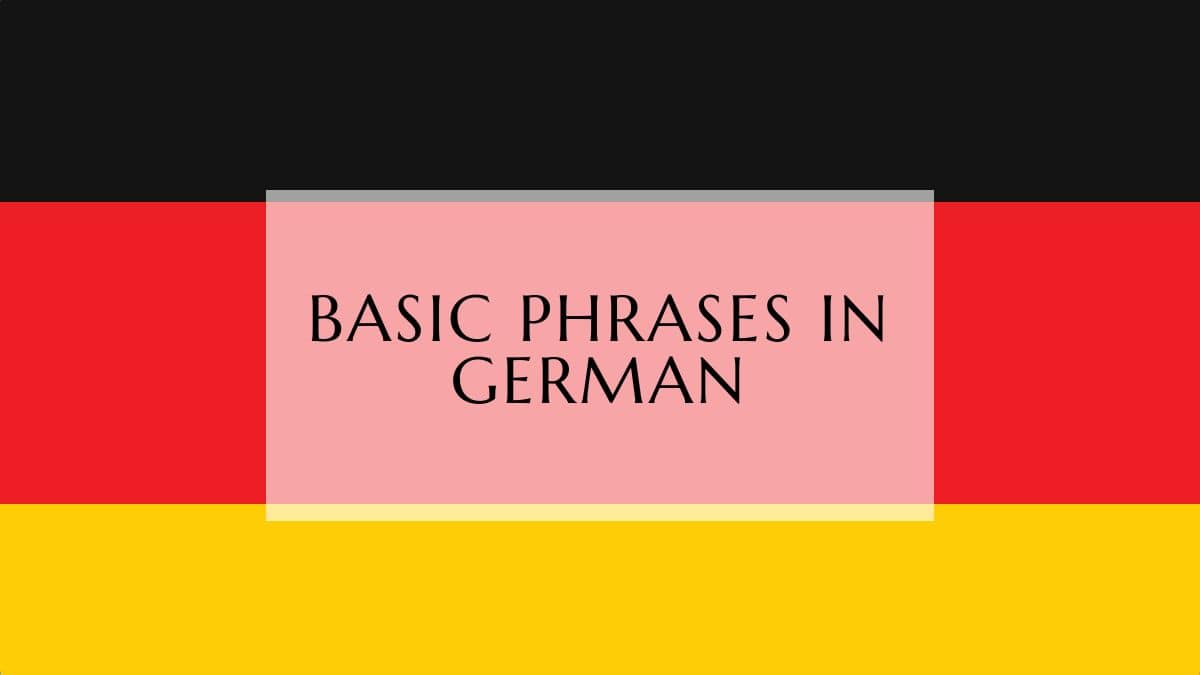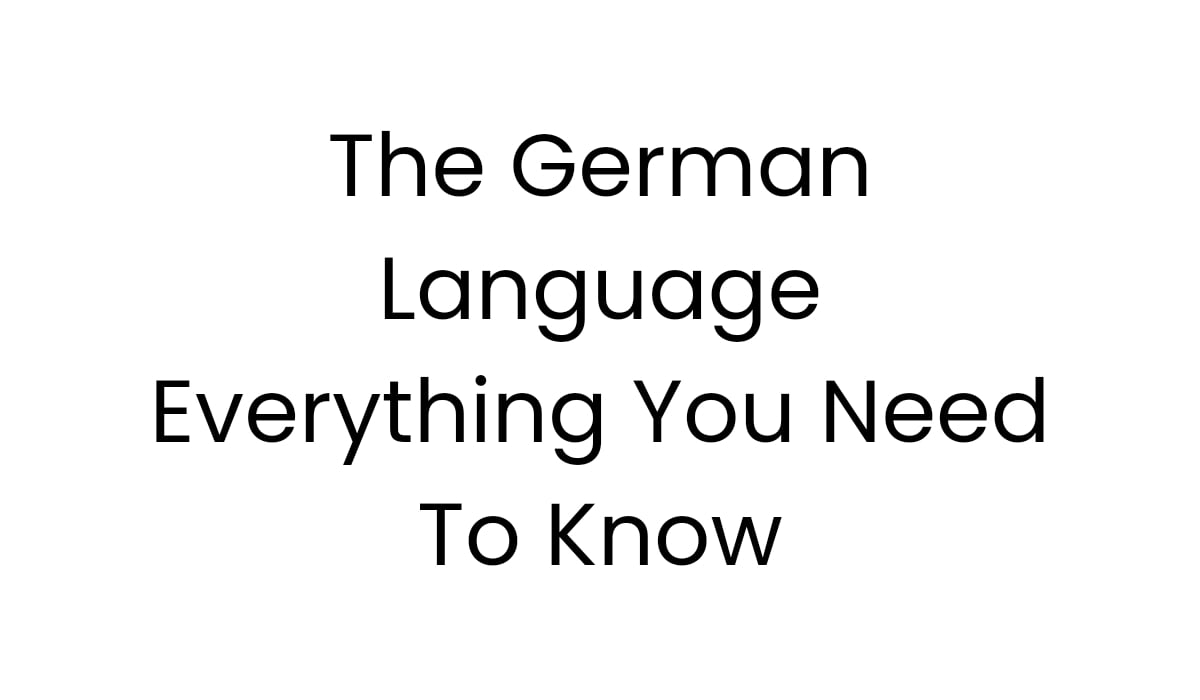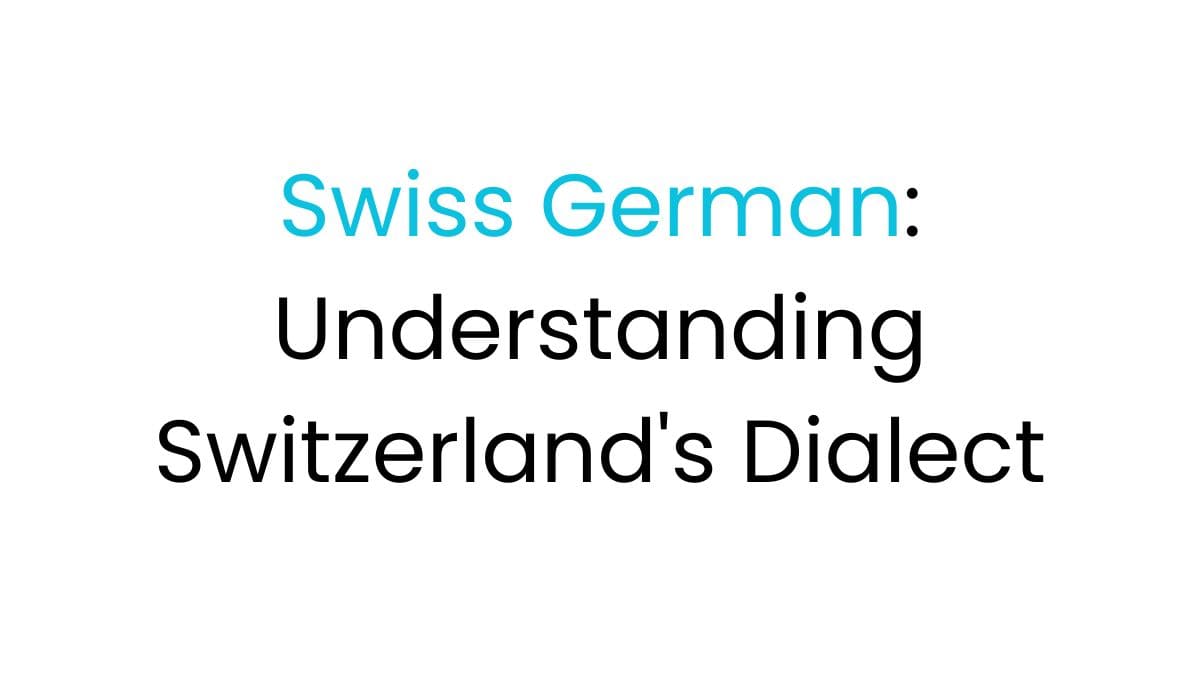Learning basic German phrases can open doors to incredible cultural experiences and professional opportunities. Starting a new language journey can be both exciting and nerve-wracking. I know this from my own experience.
With over 100 million German speakers worldwide, learning basic German is easier than ever. Whether you’re planning to travel, expand your career, or connect with German-speaking communities, this guide will help you start confidently.
German is more than just a language—it’s a key to understanding one of Europe’s most innovative cultures. German speakers have made huge global impacts in science and literature. By learning basic German phrases, you’re not just getting words. You’re unlocking a rich cultural treasure.

Key Takeaways
- Learn fundamental German phrases for everyday communication
- Understand the cultural significance of the German language
- Build confidence through practical language skills
- Discover the global importance of German communication
- Prepare for personal and professional opportunities
- Key Takeaways
- Why Learn Basic German
- Understanding German Pronunciation
- Tips for Language Learning Success
- Formal Greetings in Professional Settings
- Casual German Greetings Among Friends
- Saying Goodbye in Different Situations
- Essential Communication Phrases
- Basic Numbers 1-20
- Counting Beyond 20
- Using Numbers in Conversations
- Getting Around Town
- Asking for Directions
- Public Transportation Vocabulary
- Critical Medical Emergency Phrases
- Seeking Assistance Effectively
- How long does it take to learn basic German?
- Is German a difficult language for English speakers to learn?
- What are the most important basic German phrases to learn first?
- Do I need to learn German grammar to communicate effectively?
- What are the best resources for learning German as a beginner?
- How can I improve my German pronunciation?
- Is it necessary to learn German before traveling to German-speaking countries?
- How often should I practice German to see progress?
- What are the main differences between German spoken in Germany, Austria, and Switzerland?
- Can I learn German by myself, or do I need a formal class?
Getting Started with German Language Basics
Starting your journey in German can be thrilling. You’ll discover new cultures and ways to communicate. Learning German also opens doors to Europe’s rich history and career opportunities.
To master German, you need to grasp its unique basics. These elements make the language easy for beginners to learn.
Why Learn Basic German
Learning German has many benefits:
- It can boost your career in German-speaking countries.
- Traveling in Germany, Austria, and Switzerland becomes more enjoyable.
- It’s great for academic research and international work.
- It helps you understand European cultures better.
Understanding German Pronunciation
German pronunciation can be tough for English speakers. But, with regular practice, you can get better. Focus on how to say words correctly and on the special sounds German has.
| Pronunciation Challenge | Recommended Strategy |
|---|---|
| Umlauts (ä, ö, ü) | Practice distinct vowel sounds |
| Consonant combinations | Listen to native speakers |
| Rolling ‘R’ sounds | Regular vocal exercises |
Tips for Language Learning Success
Here are some tips for beginners:
- Practice every day for 15-30 minutes.
- Try language learning apps.
- Watch German shows with subtitles.
- Join groups to practice speaking.
“Language learning is a journey of continuous discovery and connection.” – Language Learning Expert
Start your German learning journey with excitement and patience. Your adventure is just beginning!
Essential German Greetings and Farewells
Learning german greetings is key to connecting with Germans. Whether you’re in Germany, Austria, or Switzerland, knowing common expressions is important. It helps you make a good first impression.

German greetings change based on the time and setting. Knowing these differences can improve your language skills.
Formal Greetings in Professional Settings
In formal settings, Germans value precise and respectful greetings. Here are some formal greetings:
- Guten Morgen (Good morning) – Used before midday
- Guten Tag (Good day) – Used from noon to 6 pm
- Guten Abend (Good evening) – Used from 6 pm until night
- Wie geht es Ihnen? (How are you? – formal)
Casual German Greetings Among Friends
With friends, greetings are more relaxed:
- Hallo (Hello) – Used in both formal and informal situations
- Was geht? (What’s up?)
- Wie geht’s? (How’s it going? – friendly)
Saying Goodbye in Different Situations
German farewells vary from formal to casual:
| Formal Farewell | Casual Farewell |
|---|---|
| Auf Wiedersehen | Tschüss |
| Bis später | Ciao |
Practicing these greetings will boost your confidence. It helps you connect better with German speakers in different situations.
Basic German Phrases for Everyday Communication
| English | German |
| Hi | Hallo |
| Welcome | Willkommen |
| Good morning! | Guten Morgen! |
| Good evening! | Guten Abend! |
| Good night! | Gute Nacht! |
| How are you doing? | Wie geht es dir? |
| How are things going? | Wie läuft es? |
| How is everything? | Wie geht es? |
| How is life going? | Wie geht’s im Leben? |
| Well / Very well | Gut / Sehr gut |
| Bad | Schlecht |
| More or less | Mehr oder weniger |
| I am fine. | Ich bin in Ordnung. |
| And you? | Und du? |
| Not very well, unfortunately | Leider nicht sehr gut |
| How is the family? | Wie ist die Familie? |
| Everything is fine. | Alles ist in Ordnung. |
| Thank you | Vielen Dank |
| You are welcome | Bitte |
| What’s up? | Was ist los? |
| Pleasure to see you | Es ist schön, dich zu sehen |
| How’s your day? | Wie ist dein Tag? |
| Let’s meet tomorrow | Lass uns morgen treffen |
| Bye. | Tschüss. |
| See you tomorrow. | Wir sehen uns morgen. |
| See you | Bis dann |
| See you later | Bis später |
| See you next time | Wir sehen uns nächstes Mal |
Learning basic German phrases can make talking in German much easier. These simple words and phrases help you get through everyday talks with confidence.
Start by learning phrases that are useful every day. Here are some key words that will help you talk with people who speak German.
Essential Communication Phrases
- Wie heißt du? (What’s your name?)
- Ich verstehe nicht (I don’t understand)
- Wo ist…? (Where is…?)
Learning German phrases is more than just remembering words. It’s about making connections and showing respect for the culture.
| German Phrase | English Translation | Context |
|---|---|---|
| Entschuldigung | Excuse me | Getting attention/apologizing |
| Sprechen Sie Englisch? | Do you speak English? | Language assistance |
| Bitte | Please/You’re welcome | Politeness |
Practice these phrases often to feel more confident. Every time you talk, you’re getting better at German.
Numbers and Counting in German
Learning numbers is key to mastering German. Knowing how to count and use numbers boosts your confidence in everyday talks. The German number system might seem tough at first. But with practice, you’ll get the hang of it.
Basic Numbers 1-20
Numbers from 1 to 10 in German are simple and easy to remember. Here’s a quick guide:
- 1 = eins
- 2 = zwei
- 3 = drei
- 4 = vier
- 5 = fünf
- 6 = sechs
- 7 = sieben
- 8 = acht
- 9 = neun
- 10 = zehn
Counting Beyond 20
Interestingly, German numbers between 13 and 19 have a special pattern. They all end with ‘zehn’, which means ‘ten’. For example:
- 13 = dreizehn (three-ten)
- 14 = vierzehn (four-ten)
- 15 = fünfzehn (five-ten)
Using Numbers in Conversations
When counting beyond 20, German uses a different order than English. For example, 21 is “einundzwanzig” (one-and-twenty). It might sound odd at first but gets easier with practice.
“Learning numbers is like unlocking a new way of thinking about mathematics and language.”
Practice these numbers often. Soon, you’ll be confident using them in real-life situations like shopping, telling your age, or sharing phone numbers.
Restaurant and Food-Related German Phrases
Exploring German cuisine is more than just eating. Learning basic German phrases for dining makes your trip better. Whether you want a traditional Schnitzel or vegetarian dishes, knowing key words helps a lot.
Knowing a few important German phrases helps you feel confident in restaurants. Here are some phrases you should remember:
- Ein Tisch für zwei, bitte (A table for two, please)
- Ich hätte gerne… (I would like…)
- Die Speisekarte, bitte (The menu, please)
- Zahlen, bitte! (The bill, please!)
Knowing German dining rules makes your experience better. In Germany, you should tip 5-10% of the bill. Most places include taxes in the prices, making things easy for visitors.
Pro tip: Learn a few key food vocabulary words to navigate menus with confidence!
| German Phrase | English Translation | Context |
|---|---|---|
| Ich bin Vegetarier | I am vegetarian | Dietary preferences |
| Haben Sie glutenfreie Optionen? | Do you have gluten-free options? | Dietary restrictions |
| Kann ich Wasser haben? | Can I have water? | Beverage request |
By learning these basic German phrases, you’ll find it easier to enjoy German restaurants. Enjoy exploring the rich food scene of German-speaking areas!
Transportation and Direction Phrases
Traveling in German-speaking cities can be tough. Knowing basic transportation and direction phrases boosts your confidence. These phrases are key for walking, using public transit, or getting directions.
Getting Around Town
Knowing how to ask for directions is essential. German learners should learn important phrases and directional terms. This helps you move around easily.
- Learn the 6 essential directional words:
- Links (Left)
- Rechts (Right)
- Geradeaus (Straight ahead)
- Um die Ecke (Around the corner)
- Vor (In front of)
- Hinter (Behind)
Asking for Directions
Being polite is important when asking for help. Use these phrases to communicate well:
- “Entschuldigung” (Excuse me)
- “Wo ist der Bahnhof?” (Where is the train station?)
- “Wie komme ich zu [place]?” (How do I get to [place]?)
“Können Sie mir bitte zeigen, wie ich dorthin komme?” (Can you please show me how to get there?)
Public Transportation Vocabulary
German public transport has its own vocabulary. Learn these basic terms:
- Zug (Train)
- Bus (Bus)
- U-Bahn (Subway)
- Bahnhof (Train station)
Most Germans speak English, but using local phrases shows respect. It makes your trip better. Practice these phrases to navigate with confidence!
Common German Expressions for Shopping
Shopping in Germany can be fun if you know the right phrases. Knowing key expressions helps you shop with confidence. It also lets you talk well with local shopkeepers.
Here are some important German phrases for shopping:
- “Wie viel kostet das?” (How much does this cost?) – A key question for shoppers
- “Haben Sie das in einer anderen Größe?” (Do you have this in a different size?)
- “Ich möchte das anprobieren” (I would like to try this on)
Germans like it when customers try to speak their language. There are two big sales times – Sommerschlussverkauf (late summer sale) and Winterschlussverkauf (winter sale). These are great chances to use these phrases.
Pro tip: Always greet shopkeepers when entering and leaving a store – it’s considered polite!
Knowing the right words for different stores can make shopping better. Here are some common store types in German:
| Store Type | German Name |
|---|---|
| Supermarket | der Supermarkt |
| Bakery | die Bäckerei |
| Pharmacy | die Apotheke |
When it’s time to pay, remember to say “Ich möchte bezahlen” (I want to pay). Also, about 83% of Germans pay with electronic methods.
Learning these phrases will make shopping in Germany much more enjoyable!

Essential German Phrases for Emergency Situations
Dealing with unexpected challenges in a foreign country can be tough, especially when you don’t speak the language. Knowing basic German phrases for emergencies can be a lifesaver in critical moments. Studies show that about 80% of effective communication in urgent situations relies on understanding key phrases correctly.
When traveling in German-speaking countries, having essential emergency vocabulary can greatly reduce anxiety. It helps you communicate effectively during unexpected situations.
| English | German |
| What is your name? | Wie heißen Sie? |
| My name is … | Mein Name ist … |
| Nice to meet you | Schön, dich kennenzulernen |
| nice to meet you too | Schön, dich auch kennenzulernen |
| I’m sorry | Es tut mir leid |
| Excuse me / Pardon | Entschuldigung / Pardon |
| Let’s go! | Lass uns gehen! |
| Yes | Ja |
| No | Nein |
| Perhaps | Vielleicht |
| Where are you from? (informal) | Woher kommst du? |
| I’m from … | Ich bin von … |
| How old are you? (informal) | Wie alt bist du? |
| I am … years old. | Ich bin … Jahre alt. |
| Do you speak English? (informal) | Sprichst du Englisch? |
| I don’t speak… | Ich spreche nicht… |
| I speak… | Ich spreche… |
| I speak a little Spanish | Ich spreche ein bisschen Spanisch |
| Just a moment please | Nur einen Moment bitte |
| How do you say … in Spanish? | Wie sagt man … auf Spanisch? |
| Can you help me? | Kannst du mir helfen? |
| Can you say that again? | Kannst du das noch mal sagen? |
| Do you understand? | Verstehst du mich? |
| I don’t know | Ich weiß nicht |
| I don’t understand | Ich verstehe nicht |
| Of course | Natürlich |
| What does it mean … ? | Was bedeutet das … ? |
| What? | Was? |
| Here. | Hier. |
| What is that? | Was ist das? |
| It doesn’t matter | Es ist egal |
| I have no idea | Ich habe keine Ahnung |
| I’m tired | Ich bin müde |
| I’m sick | Ich bin krank |
| I’m hungry | Ich habe Hunger |
| I’m thirsty | Ich habe Durst |
| I’m hot | Ich bin heiß |
| I’m cold | Ich bin kalt |
| Congratulations! | Herzlichen Glückwunsch! |
| Don’t worry | Keine Sorge |
| Good luck! | Viel Glück! |
| I must go now | Ich muss jetzt gehen |
| That’s alright. | Das ist in Ordnung. |
Critical Medical Emergency Phrases
- Hilfe! (Help!)
- Ich brauche einen Arzt (I need a doctor)
- Notfall (Emergency)
- Es ist ein Unfall (It is an accident)
Seeking Assistance Effectively
Clear communication is key in emergencies. The emergency number in Germany, 112, is known by about 60% of non-German speakers. Learning these basic German phrases can help you get help quickly.
| English Phrase | German Translation |
|---|---|
| I need help | Ich brauche Hilfe |
| Call an ambulance | Rufen Sie einen Krankenwagen |
| I am hurt | Ich bin verletzt |
Knowing emergency phrases can reduce response times by nearly 30% in critical situations.
By mastering these basic German phrases for emergencies, travelers can feel more confident and prepared when exploring German-speaking regions. Remember, practice and preparation are key to effective communication during unexpected events.
German Small Talk and Social Interactions
Learning german conversational phrases is more than just words. In Germany, small talk is an art that needs cultural understanding and social skills. Knowing the right phrases can greatly improve your interactions.
Germans value direct but polite talk. The secret to good small talk is finding the right mix of formality and friendliness. Most chats start with a greeting and a real interest in the other person’s life.
“Small talk is the gateway to deeper connections in German social interactions.”
- Start conversations with Wie geht’s? (How are you?)
- Discuss weather with Schönes Wetter heute, nicht wahr? (Nice weather today, isn’t it?)
- Ask about weekend plans using Was machst du am Wochenende? (What are you doing this weekend?)
When starting conversations, remember social rules. Use Sie for strangers or older people, and du with friends or peers.
| Situation | Appropriate Phrase | Context |
|---|---|---|
| First Meeting | Freut mich! | Nice to meet you |
| Casual Greeting | Was geht? | What’s up? (Informal) |
| Formal Setting | Guten Tag | Good day |
Remember, in Germany, small talk often talks about the weather, hobbies, travel, and food. Ask open-ended questions to start deeper talks and make real connections.
Basic German Grammar for Beginners
Starting with german language basics means learning some key structures. German grammar might look tough at first. But, breaking it down makes learning easier for beginners.
Let’s look at the main parts to help you start strong in German grammar:
- Noun Genders: German nouns have three genders
- Masculine (der)
- Feminine (die)
- Neuter (das)
- Sentence Structure: German has its own rules for sentence order
- Verb is usually in the second position
- In smaller clauses, the verb goes to the end
“Learning German grammar is like solving an intricate puzzle – each piece fits perfectly when you understand the rules.”
German cases are key in building sentences. The language has four main cases:
| Case | Function | Example |
|---|---|---|
| Nominative | Subject of sentence | Der Hund (The dog) |
| Accusative | Direct object | Den Hund (The dog) |
| Dative | Indirect object | Dem Hund (To the dog) |
| Genitive | Possession | Des Hundes (Of the dog) |
For german for beginners, practice is key. Remember, all German nouns are capitalized. This makes them stand out in sentences. Verb forms and adjective endings change with gender and case, making the language complex.
Pro tip: Begin with common verbs and their forms to boost your confidence in german language basics.
Conclusion
Starting to learn German is an exciting journey. It opens doors to new cultural experiences and ways to communicate. Every word you learn brings you closer to connecting with German-speaking communities worldwide.
Learning a language is a journey that never ends. Start by practicing the essential phrases we’ve covered. Then, expand your vocabulary and confidence slowly. Use language learning apps, watch German movies, or join conversation groups to improve your skills.
Making mistakes is a big part of learning. Native speakers value your effort to speak their language, even if you’re not perfect. Focus on building your confidence, stay curious, and enjoy the journey of discovering German language and culture. Viel Erfolg (Good luck) on your language learning adventure!
Your next steps should include consistent practice and finding language exchange partners. Explore resources like podcasts, language learning platforms, and German media. With dedication and passion, you’ll turn basic phrases into meaningful conversations and deep cultural understanding.
FAQ
How long does it take to learn basic German?
Is German a difficult language for English speakers to learn?
What are the most important basic German phrases to learn first?
Do I need to learn German grammar to communicate effectively?
What are the best resources for learning German as a beginner?
How can I improve my German pronunciation?
Is it necessary to learn German before traveling to German-speaking countries?
How often should I practice German to see progress?
What are the main differences between German spoken in Germany, Austria, and Switzerland?
Can I learn German by myself, or do I need a formal class?
Oualid Cheddadi is the founder of Lingualid, a platform that inspires independent language learners worldwide, regardless of the language they are learning. The name “Lingualid” is derived from the Portuguese word for “language,” “língua,” and the last three letters of Oualid’s name, “Lid.”



